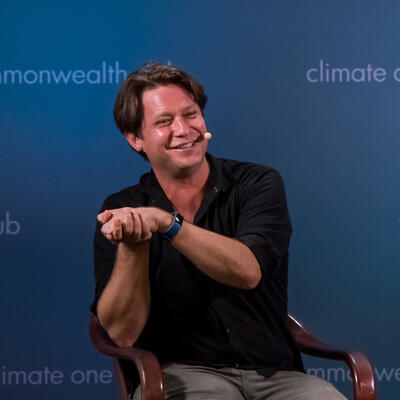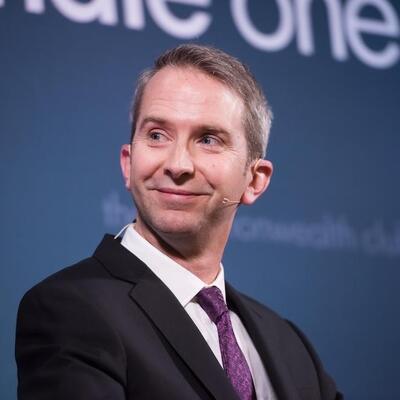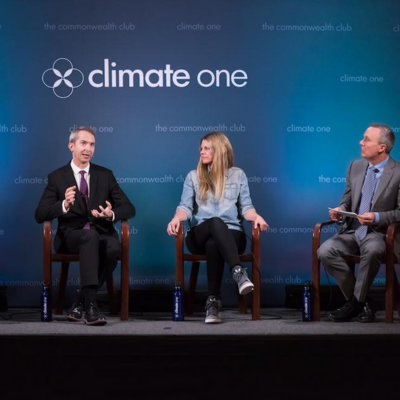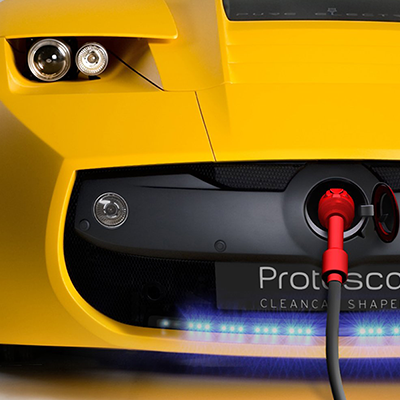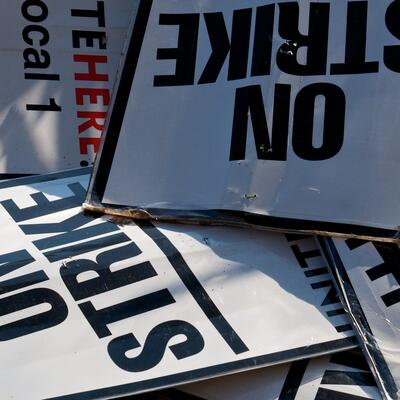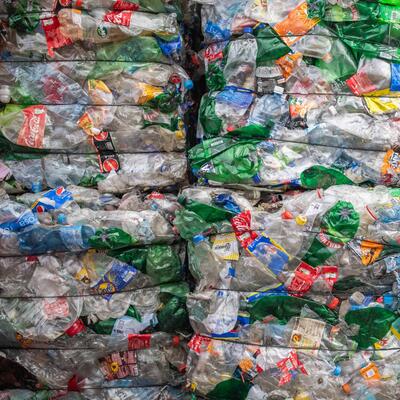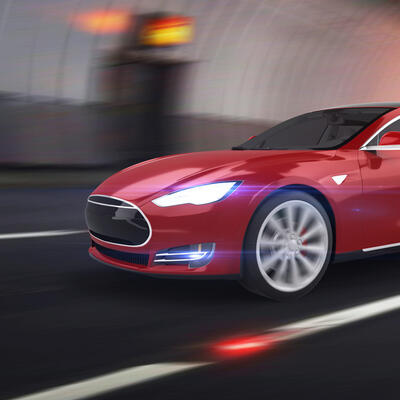
Insane Mode: Tesla’s Wild Ride
Guests
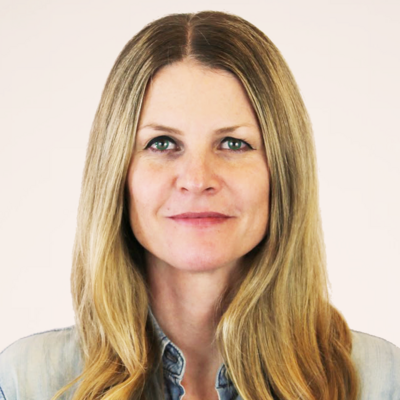
Katie Fehrenbacher

Lora Kolodny

Hamish McKenzie
Summary
Full Transcript
Announcer: This is Climate One, changing the conversation about energy, economy and the environment.
On today’s program – taking the high road with Tesla’s electric dream.
Lora Kolodny: What isn’t better, I mean, you can buy your way out of climate change by getting yourself a luxury car and driving fast! That’s wonderful, who wouldn’t want to take part in that?
Announcer: Who indeed? As it turns out, Tesla’s Model Three was the top-selling luxury car for 2018. But that doesn’t quite add up to giant profits.
Katie Fehrenbacher: You know, it’s a game of pennies. So say if there’s a $35,000 car there's $10,000 parts, they’re at $3.50, they need to get down to three dollars a part. So they’re just cutting costs at any point possible.
Announcer: And there’ve been other roadblocks along the way. Production woes, workplace complaints and CEO shenanigans - fasten your seat belts for Tesla’s wild ride. Up next on Climate One.
Announcer: It’s been a bumpy ride so far - what’s down the road for Tesla?
Climate One conversations – with oil companies and environmentalists, Republicans and Democrats – are recorded before a live audience, and hosted by Greg Dalton.
Male Speaker: This is the Tesla Model 3 all-wheel drive dual motor. It’s amazing; I’ve been waiting for it for years. I put my deposit in the day before they even showed the car.
Despite having the top-selling luxury car in 2018, and a loyal if not rabid customer base, Tesla has been facing major challenges. In August, maverick CEO Elon Musk was slapped with SEC charges over some rather misleading tweets. That cost him and the company millions in fines and forced Musk to step down as chairman. But that’s probably not the last we’ll hear from him.
Katie Fehrenbacher: I don't think Elon Musk is gonna back down at all. And I think they'll continue this kind of drama and game until…maybe the SEC will double down and try to follow his tweets, you know, even more closely and try to catch him on something.
Announcer: Other skidmarks for Tesla include production delays, shareholder skittishness and some well-publicized workplace complaints.
Hamish McKenzie: Yeah, I don't think it's spilling any secrets to say that it’s a difficult place to work. There been lots of reports about how demanding the big boss can be and how demanding the circumstances can be and how much of a sacrifice people are expected to make.
Announcer: Today on Climate One, we assess the health of Tesla, its overall impact on the auto industry and its future as a leader in the green economy.
Greg Dalton’s guests are three writers who have been watching the company closely. Lora Kolodny is a tech reporter for CNBC. Katie Fehrenbacher is a Senior Writer & Analyst with GreenBiz. And Hamish McKenzie is the author of “Insane Mode: How Elon Musk's Tesla Sparked an Electric Revolution to End the Age of Oil.” He’s also a former lead writer at Tesla.
Here’s their conversation.
Greg Dalton: Lora Kolodny, let’s talk about the health of the company today. How’s Tesla doing, a lot has happened in the last year or so, it’s hard to keep up with the headlines. But where are we today in terms of, you know, the pulse of the company?
Lora Kolodny: The health, okay, I mean I’m not like the Tesla doctor and I can’t completely diagnose it. But in the great game of business there’s a scoreboard and if you look at it like the bean counters do it’s pretty challenged right now. Tesla’s been in a kind of cash-strapped position for the moment. They had some years where they really spend a lot on, you know, setting up the factory and figuring things out and then last year as they were ramping up production of the Model 3, their latest electric sedan, which is potentially their first breakthrough really mainstream car, not just for the early adopters. They had a few missteps; they over-automated, Elon has acknowledged, like I'm on a first name basis with him, Elon Musk, the CEO has acknowledged, you know, some errors and unplanned spending to correct them. And I mean it's, at the moment they just paid down a huge fund obligation $920 million they're not spending a lot in terms of capex, capital expenditure, to set up for the future compared to prior years. So it’s gonna be a real challenge for them to operate leaner and meaner.
Greg Dalton: Right. So there’s a lot going on there we’ll unpack. Katie Fehrenbacher, do you think that Elon Musk has been tamed by some of the recent, you know, experiences with regulators, etc.?
Katie Fehrenbacher: Tamed, no, not at all. I mean, I think that, you know, the SEC has taken this kind of unusual and public step but I don't think Elon Musk is gonna back down at all. And I think they'll continue this kind of drama and game until not sure exactly what’s gonna happen but, you know, the SEC will double down and try to follow his tweets, you know, even more closely and try to catch him on something later in the month, I’m not sure.
Greg Dalton: Right. The Securities and Exchange Commission is looking into, you know, it’s kind of bizarre that one pretty mild tweet is being scrupulously scrutinized when there’s other tweets we see every day that are seem to play by different standards, but say the least. But Katie let’s talk about the recent moves to close stores and then the companies said, no, no we’re gonna only close half of our stores laying off workers. What is this saying, is this a company that's kind of getting fit or is this a company that's little wobbly?
Katie Fehrenbacher: Well I mean right now it’s all about cost cutting for Tesla. So they’ve reached this point, kind of miraculously, where they're actually selling the $35,000 Model 3. So they made this point but it’s still not an economic proposition for them. I mean I don't know the margins on the Model 3, $35,000, Model 3 but they are --
Greg Dalton: Hang on. An analyst from UBS who said $41,000, this was a story that Lora wrote, $41,000 is break even. So every car that they sell for $35,000 they lose $6,000 that’s according to a Wall Street analyst.
Katie Fehrenbacher: I'm not surprised. So I mean what Elon Musk was saying on the press call a couple of weeks ago is that, you know, it’s a game of pennies. So say if there’s a $35,000 car there's $10,000 parts, they’re at 350 they need to get down to three dollars a part. So they’re just cutting costs at any point possible. I mean his kind of bizarre strategy of closing the stores and then reopening again I think you know, it expresses the fact that one, he, you know, is probably pretty concerned about the stock drop. Number two, he does I think listen to customers so maybe he had a pretty strong feedback. And also they’re in kind of a chaos mode right now so he’s kind of shifting and trying to figure out what he’s gonna do.
Lora Kolodny: There was another theory about the store closures that if you say you’re gonna close them and you take away everyone’s commission, anyone who’s not like a branch Elonian will leave their jobs then you get out of having to pay them severance.
Greg Dalton: Interesting. Lora, there’s also this whole thing of the dealers the stores were such a big part of Tesla because incumbent auto dealers fought them hand-to-hand combat state-by-state to not open hese stores and then to suddenly say they're closing them it seems like such a surrender. But you also think that stores are where car companies can make money.
Lora Kolodny: I think that for Tesla the stores are like advertising, you know, it's the signage, it's the allure of going in there. I think their education I think they are sort of the front end that connects the customers to service that's needed. And I feel like, you know, Tesla has always said they don’t want to make service like a profit center they don’t wanna make money off just keeping your cars in great shape, but if they wanted to they could. Usually that’s how dealers make money; not just on the sale, but on the ongoing service at a point. And I, well I wasn’t surprise they would make a bold move towards e-commerce only. I was surprised that they would do it so suddenly and also kind of reverse course so quickly.
Greg Dalton: Right. Because they put so much into battling the incumbent industry to open these stores and then too quickly. Hamish McKenzie tell us about the tipping point, whether you know, how much Tesla is affecting other automakers it was kind of this niche maker for a while in California. Is it really, because that’s the premise of your book is, you know, moving away from oil and changing the industry. What is the evidence that's happening?
Hamish McKenzie: Well, Volkswagen for one is putting $50 billion into transforming itself into an electric car company over the next five years. So I think that's pretty compelling evidence that it’s happening.
Greg Dalton: Well they did a lot of that because they got busted big time.
Hamish McKenzie: They got busted, yeah. They are doing what’s necessary to survive as an automaker beyond at a time frame of 5 to 10 years. The other companies should be doing that but they’re not. They have some promised cars coming off the line in the next few years, but it's almost on a token level. The tipping point I think well if we’re gonna cast our minds forward and look back in history we’ll look at the advent of the Model 3 and see that's in the space of a week since the announcement of the Model 3 there are about 400,000 orders for the car people are lining up outside the stores to place preorders like people did with iPads and iPhones for Apple. And I think at that point, the traditional automakers would've looked up and said, damn.
Greg Dalton: Yeah they did, right.
Hamish McKenzie: And I think also we’ll see the burst of innovation and movement in China as they aggressively move into electric vehicles. And the slowdown of sales in the traditional market in China and the acceleration in the new energy market in China, which is taking place over the last 12 months or so is a tipping point as well. That’s the world's largest auto market. They have the most incentive to move aggressively into clean energy and autonomy and I think China's gonna be more important than United States. So this is like the general areas like this is the tipping point in terms of the market realizing is going to shift.
Greg Dalton: Lora, you've written about Tesla getting some big financing for Shanghai. A project in Shanghai is I think is a battery or is it a Gigafactory in Shanghai. So how's it looking for Tesla in China?
Lora Kolodny: I feel like Tesla has this brand appeal in China. It's like a Louis Vuitton or Coach or something; they are a designer brand a luxury they’re well-known and again that government push for new energy vehicles, which include hybrids and hydrogen and things like that in China. But it’s a strong wind, you know, for Tesla but it’s gonna be really challenging. They have this, they raised 500 million for a project that they project will cost around 2 billion. They’ve learned a lot about manufacturing in the states taking over the NUMMI factory out here in the Bay Area building the Gigafactory in Nevada. But that’s still a lot leaner than what they had spent in the states and it’s in a market where they don't necessarily have a ready supply chain the same, you know, kind of assets as far as like recruiting networking but I think financiers have shown willing to work with them. Yeah, their prospects look good if they can get that up and running and it's not just a tent.
Greg Dalton: Which is a reference to there’s now a tented assembly-line here in California. And that was because there were some problems with the Model 3 assembly-line is that right, Lora or Katie?
Katie Fehrenbacher: Well, it wasn't able to produce the volume of cars at the speed that they wanted. So they --
Greg Dalton: Probably because it was overly automated?
Lora Kolodny: Right.
Katie Fehrenbacher: Yeah. And so they I mean basically Jerome, who is now the president who’s kind of in charge of building this assembly-line in a tent next door to the Fremont factory. And I mean I heard them talk about it, you know, it was a lot more linear so it’s like one like line across the building. I haven’t been inside but.
Greg Dalton: And that’s the way that auto companies have traditionally been and Lora you’ve written about how Tesla does everything different. The language they use the processes they use they’re like anti-Detroit in every way. Detroit calls something, you know, X, Tesla is gonna call it Y, just because.
Lora Kolodny: Or Japan in that case. That’s right. I mean they wanna own end to end the data the process, you know, they wanna make a factory that makes factories. And, you know, in some regards they’ve been breakthrough I think the battery architecture is the main thing. But that said, they do sometimes arrive at the same conclusions as other car companies and you end up with things like this tent and you end up with, you know, semi-automated where you've got labor, you know, manual work and that's kind of interesting. It's like at a certain point, Silicon Valley has to appreciate Detroit and Texas, their predecessors. Like art history, you know, I mean, nobody stands alone we’re all in the shoulders of giants even if we have some new environmentally better ideas.
Greg Dalton: There tends to be a bit of an attitude that Detroit and maybe Houston are stupid why they doing things a certain way and it's easy to make fifty thousand cars one way. But Katie Fehrenbacher, it's a whole different deal to make a million cars, right. Scaling is something with metal not just chips or code; scaling is something that the people in Detroit who have been doing it for 100 years they know that that's hard and Silicon Valley sometimes there’s an arrogance about that.
Katie Fehrenbacher: Yeah. I mean Silicon Valley has had this issue kind of across clean tech across all energy factors where a lot of the investors from the Internet age who wanted to get into green tech investing they were pretty arrogant about it and then invested a lot of money that actually was wasted and didn’t produce a lot of new innovation.
Greg Dalton: It’s hard to do steel and concrete more than code. I wanna get back to the, you know, Tesla customers. We went to a new supercharging station near Oakland, California to find out what Tesla owners think of the car, the company and the phenomenon.
Male Speaker: My name is Corey Albertson and I bought this car in August of last year. My mind wasn’t capable of conceiving this piece of technology until I just actually experienced it. Like going down the highway and watching the car drive itself that was something where I had to program my consciousness to be able to handle, because it’s something from the future. I try to stay away from like celebrating the material world too much though so I really enjoy it but I try not to let it define me too much.
Male Speaker: My name is Byron I live here in Oakland. This is the Tesla Model 3 all-wheel drive dual motor. It’s amazing; I’ve been waiting for it for years. I put my deposit in the day before they even showed the car. I think I was like maybe 29 in line in the Fremont factory. So I support the company I support Elon what he’s doing with SpaceX with his Boring Company. It’s all exciting stuff, you know, he’s moving the needle.
Male Speaker: My name is Austin del Berto, I live in Oakland, California. I’m a huge fan. I did own stock. I sold it recently cause it just kept going up and down, up and down. And they’ve had a hard time right now. I think it’s mostly media driven but still they are having some issues now that I think they’re gonna work through but the media sure doesn’t help.
Greg Dalton: Voices of Tesla owners at a charging station near Alameda, California. And just to be clear we always try to include diverse voices but the couple hours that our producer was out there at that Tesla charging station there were all dudes charging their Tesla on that day.
So Lora Kolodny, let’s have your feedback on that. The volatility of the stock; we have an owner who says they worship their Tesla but don't like to worship material things. Your take on the shareholders and the owners.
Lora Kolodny: Part of the Tesla experience is this camaraderie. It's in-house. I hear it even from employees after they're fired. There's a camaraderie there's a sense of belief in the mission that it's an honest mission. And, you know, what isn’t better, I mean, you can buy your way out of climate change by getting yourself a luxury car and driving fast that’s wonderful who wouldn’t want to take part in that.
And I don't know that the customers necessarily are evaluating the company with the same meticulousness and possibly obnoxiousness as the bean counters, you know, the investors whether they’re short sellers or long.
When I talk to investors that have a long view on the company they say Tesla is front runner in EVs and the EV trend is going nowhere but up, right. Like the industry research I've heard from different firms, including IHS and others, I think IHS fact check me on that, is that, you know, EVs or at least new energy vehicles will comprise like 20% of the market inside of five years even sooner than that and the auto market is huge. So it may not sound that big like 20% but it's actually quite a lot of growth I think we’re somewhere around 5% now.
Anyway, this finance stuff is less interesting than sexy cars and solving climate change.
Katie Fehrenbacher: Well I want to make a point on the customers. I mean I think Tesla should be very appreciative of their customers like they have been especially the early ones like the gentleman who said, you know, I was a fan from the Roadster. Those people have been supporting Tesla even through the early days when a lot of the cars had problems like early builds of the cars have come out with software problems, door handle problems, all these things and the Tesla customers have been so loyal to that company.
Lora Kolodny: Very patient.
Greg Dalton: And is that because of the design the beauty, the elegance the mission or some combination of all that, Katie?
Katie Fehrenbacher: A combination, I mean it’s definitely a mission driven company so, you know, Elon and the mission inspires people. But then it is such kind of whizbang technology company as well so, you know, the same things that have inspired love of Apple and Steve Jobs are the same things that this whole like showmanship and very sexy reveals. I think it keeps people's interests and keeps them going.
Hamish McKenzie: I think that their brand and their appeal and their sexiness is carried by their believers and they have got a lot of believers. There are a lot of doubters and you can read into Tesla whatever story you want to read but it does also help that they make good cars. The cars are a thrill to ride and if you’ve driven one it sucks to go back to an internal combustion engine car.
Lora Kolodny: Or a hybrid.
Hamish McKenzie: It didn’t have good cars and they didn’t have technology that everyone can believe in then it would be for naught. So I think they deserve credit on that front.
Announcer: You’re listening to a Climate One conversation about the future of Tesla. Coming up - going on autopilot.
Hamish McKenzie: Yeah, the car will change lanes by itself, that's an unnerving feeling. You see all these exits coming up, these lane changes coming up, cars beside you. It's hard to just give yourself over to that feeling.
Announcer: That’s up next, when Climate One continues.
Announcer: We continue now with Climate One. Greg Dalton is talking about electric cars and autonomous driving with three journalists and Tesla-watchers. His guests are Katie Fehrenbacher of GreenBiz, Lora Kolodny of CNBC, and Hamish McKenzie, author of “Insane Mode: How Elon Musk's Tesla Sparked an Electric Revolution to End the Age of Oil.”
Let’s get back to their conversation.
Greg Dalton: Hamish, you write about the first time in 2016, you got into a Model X for the first time and your friend was put on autopilot. So tell us how that was like to, you know, have a machine driving down the road for the first time.
Hamish McKenzie: Yeah, I’m still not comfortable whenever I'm in a car that has autopilot turned on. But it took a little bit of time to adjust to the idea that he's going to take his hands off the wheel; actually I don’t trust this guy driving anyway. But yeah, the car changes he flicks the blinker and the car will change lanes by itself that's an unnerving feeling you see all these exits coming up these lane changes coming up, cars beside you. And when the car actually drives at a speed that it has decided is gonna be its constant, then it's hard to just give yourself over to that feeling. But, after the initial uneasiness passes, it starts to become a little bit of a background thing and you start talking and carrying on your days as if everything is normal. And it's a little bit disconcerting on that end as well that you can so quickly just sacrifice control to this machine.
Greg Dalton: Right. Lora Kolodny, is Tesla leading to the future of autonomous vehicles, are they sort of where the industry's going on this or not?
Lora Kolodny: They’re distinct in their approach. I'm not sure the direction of the industry is going to have pass up, you know, lidar as a sensor they think is necessary which that's it's a laser-based sensor it sort of shoots out these lasers and senses from the time the light comes back how far away objects are kind of creates a 3-D map. That’s a gross oversimplification but I mean they're not using lidar and--
Greg Dalton: Everybody else is and they’re not.
Lora Kolodny: Pretty much and they’re also, you know, you mentioned your friend drives hands-off the wheel; you're not supposed to do that. When you see the autopilot updates to get them in vehicle apps you have to acknowledge you’re not gonna do that and Elon Musk did it in an interview with Gayle King on CBS. It’s somewhat disconcerting that they talk about it as full self-driving when it's not quite what I think the general public believes is full self-driving --
Greg Dalton: It’s glorified cruise control.
Lora Kolodny: Well, I mean that might be too minimizing but I mean it's an advanced driver assistive system, right. I don't know if that's the path others will take I am impressed with their developers in a sense, but it doesn't seem like others are taking a related approach or inclined to follow Tesla's lead on that.
Greg Dalton: Because I used to think that Tesla had these cars on the road so they must be ahead because they have it's all artificial intelligence is all about, the data, they have lots of miles. But Katie Fehrenbacher, maybe that that's not the case there’s others, Waymo, others who are ahead of Tesla on this.
Katie Fehrenbacher: Yeah, I mean like you said Waymo, GM Cruise are investing heavily in full self-driving. But to Lora’s point, I mean I think it’s very irresponsible of Tesla to even name it Autopilot and kind of give this impression that people should be have this full self-driving capability when kind of like, you know, wink, wink, nudge, nudge actually keep your hands on. But, you know, it seems like clearly lots of customers are not doing that.
Greg Dalton: Hamish McKenzie. Tesla is leading a move toward electrification. What are the oil companies doing about this, are they opposing Tesla? Do they even feel threatened by it are they trying to put tacks in the roads?
Hamish McKenzie: No, they’re very happy and they want to help Tesla succeed and they everyday they’re in the press singing their praises. No, I think they feel very threatened and any dip in demand for oil is going to hurt their business and it's pretty evident that a big dip in demand is coming. There’s already been oil crises through more minor dips than what would happen if electric cars came online in a major way.
So there has been opposition. The Koch brothers are pretty active at funding disinformation campaigns against Tesla and Elon Musk in particular. Or just to cover myself completely, mysterious outfits with innocuous seeming names fund campaigns that attempt to discredit Elon Musk and Tesla in a way that is similar to campaigns that have been proven to be funded by the Koch brothers in the past.
And so you see websites appear saying that Elon Musk is the great American swindler story where it starts off with a video that calls him a foreign-born billionaire and playboy who likes to party with Hollywood celebrities. There’s a website also that was set up and funded by one of these groups that was called Stop Elon from Failing Again. I think the oil companies been involved like lobbying groups that have funded efforts trying to slow down the transition to electric cars in the past pre-Tesla. It’s not in their interest for electric cars to become popular it's not -- they are doing what’s in the interest of their shareholders by doing everything they can to slow down the transition; that's how capitalism works.
Greg Dalton: If you’re just joining us we’re talking about Tesla and the switch to electrical and clean energy with Katie Fehrenbacher, Senior Writer and analyst at GreenBiz. Lora Kolodny, reporter for CNBC and Hamish McKenzie, former Tesla writer and now author of Insane Mode: How Elon Musk's Tesla Sparked an Electric Revolution to End the Age of Oil. I'm Greg Dalton.
Lora Kolodny, you also see some people on the other side, there are Tesla zealots who attack reporters who dare question the company.
Lora Kolodny: Yes. I mean it's daily, I actually feel like I’m doing my best work in a week where I'm getting accused of being in the pocket of Tesla at the same time as I'm being told I'm unreasonably harsh. Sometimes when you're impartial about a company's growing pains and you're doing reporting by the numbers that's the breaks. But there's no question a huge amount of Tesla zealotry out there. Like I said who wouldn't want to be part of this appealing movement led by an iconoclastic cowboy CEO who has this incredible vision for the future and gives a great just a bang on presentation, hosts Jack White concerts for his employees. I mean it's a fun movement to be part of; it’s totally understandable that people are super fans, especially if they have the driving experience, whether through owning leasing or you know, just trying it out on Turo. We also are looking for reasons to hope about the environmental future. So it's understandable, but it is kind of, it’s a funny facet of reporting on Tesla.
Greg Dalton: Katie Fehrenbacher, as a business leader in climate world, you know, Elon Musk joined President Trump's business council for as long as that existed. How effective is Musk himself because he’s so far out there that it’s not someone that other corporate leaders can follow because he's so enigmatic and so, you know, unique.
Katie Fehrenbacher: I think that, you know, over the past year or two specifically last year, Musk has had a lot of these kind of public dramas on Twitter. But he has, you know, several decades of an impressive business career with PayPal and SpaceX and now Tesla and SolarCity, we know what happened to that company. So I think that, you know, he has this kind of impressive resume so he is able to bring business leaders to the table. I don’t think he’s necessarily tainted or like too dramatic just yet.
Greg Dalton: We’re gonna go to our lightning round and ask our guests to respond to I’ll mention a noun and just get their immediate response of what comes to their mind with no filter and complete irresponsibility.
So Lora Kolodny what comes to mind first when I mention Tesla's Model Y?
Lora Kolodny: Latest and greatest.
Greg Dalton: Hamish McKenzie. Tesla’s lawyers.
Hamish McKenzie: Belligerent.
Greg Dalton: Lora Kolodny. Tesla’s autopilot.
Lora Kolodny: Learners permit.
Greg Dalton: Hamish McKenzie. Tesla’s stance toward labor unions.
Hamish McKenzie: Complicated.
Greg Dalton: Lora Kolodny. The Green New Deal.
Lora Kolodny: To be continued.
Greg Dalton: True or false. Lora Kolodny, Tesla employees say Elon Musk is a hands-off manager who empowers his employees and respects their expertise.
Lora Kolodny: They would say that in front of him. It’s false.
Greg Dalton: Hamish McKenzie. True or false, every car in the world contains emission control technology that can be traced to clean air protections in California.
Hamish McKenzie: If not every car in the world then a lot of them.
Greg Dalton: Last one, true or false. Katie Fehrenbacher. You'd love to get high with Elon Musk.
Katie Fehrenbacher: False. I would not.
Greg Dalton: Let’s give them a round of applause for getting through the lightning round.
Katie Fehrenbacher, there’s a lot of car companies out there it’s hard to keep track with all new ones. I was riding my bicycle home yesterday and I went by a Fisker. Remember Fisker? Fisker was a no compromise car beautifully designed by a veteran of the auto industry. I think they made exactly 16 cars --
Katie Fehrenbacher: Two thousand.
Greg Dalton: Okay, two thousand. But now there's Faraday Futures there’s Rivian which Amazon invested in and also maybe perhaps the new sexy one is NIO from China. So what's the competitive landscape of these new kind of Tesla wannabes?
Katie Fehrenbacher: I think that there are gonna be other independent electric carmakers that are successful. I think Tesla has kind paved the path for them. I think it’s very interesting that a lot of these companies are coming out of China. So NIO, originally funded by a Chinese billionaire. I think that there will be a lot of companies that do fail though like Fisker did. You know, Fisker and Tesla at one point where kind of in the same stratosphere. But I think that, you know, just in China alone there's I think I read something there's like 300 electric independent car companies that had been created so that will be cut down dramatically over the next five years.
Greg Dalton: Lora Kolodny, how do you see the competitive landscape here,Tesla versus these other, you know, now that it’s so successful it sparked lots of imitation?
Lora Kolodny: I think some of these Chinese companies have a shot to become exporters in a really serious way especially you brought up Warren Buffett he has an investment in I believe BYD and also SAIC they're making a lot of electric vehicles and selling a lot of them in China. I think some of the traditional automakers they face an existential crisis if they can’t figure it out. Let’s hope they do; they need to have an offering.
And, you know, I think an unsung hero in this sort of like new energy vehicles is Toyota Prius. I know it's a hybrid and so sort of extended the you know, reliance on oil and gas, right, in a sense but this made people comfortable with, you know, issues like range anxiety and I'm really curious to see what's the next stage for Toyota.
Greg Dalton: A lot of it is really about intellectual property, right. Toyota was synonymous with hybrid so they’re just trying to milk as much as they can from that hybrid they own that hybrid space, right. There’s very few other real hybrids now, you know, there’s sort of there’s the battery electrics -- Toyota perhaps --
Katie Fehrenbacher: There’s the plug in Prius.
Greg Dalton: Yeah, which is what she’s talking about. But then there’s, you know, hydrogen. Toyota, maybe Honda have the only hydrogen cars on the market, you can go and buy one today. Hamish McKenzie, you look at this also in your book in terms of the competitive landscape China. How do you see that playing out in terms of other companies rising to Tesla or how you see that shaking out?
Hamish McKenzie: Yeah most startups fail. It’s even harder to start a car company; in the U.S. in particular it’s hard to start a car company. Tesla is the only one since Chrysler in 1925 that has succeeded. It’s even more ridiculous to start an electric car company changing people's behaviors and then introducing the completely new technology. But the time is right for it and Tesla has led the way for the others; it has shown that it’s possible and that there is demand for this kind of cars. In China, I expect there will be a couple who get by. Byton is really interesting one led by Carsten Breitfeld who was the head of the i8 and i3 program at BMW, got serious money behind them. NIO is another one; they’re already public and making cars and put cars on the road. It’s really quite an achievement. And also they mix industry talent from auto and technology and seemed to be doing that relatively well.
I think a lot of these Chinese companies trying to mix Chinese culture and American culture, that's really difficult. So that will probably be a hard barrier for them to overcome. But just from the sheer weight of economic forces and the need to shift away from a carbon based economy to clean energy by necessity there have to be some winners. I am encouraged by Rivian, I don’t know much about them except seeing their product on the website. The vehicle sounds awesome, the pickup truck and it’s a pretty encouraging sign that Amazon put $700 million into them. So without any particular inside knowledge I see them as hopeful
Announcer: You're listening to a conversation about how Tesla is driving the rest of the auto industry into the age of electricity. This is Climate One. Coming up, the view from inside the factory.
Hamish McKenzie: It’s not for the faint hearted and I think Musk has tried to put a bit of a public relations spin on what it’s like to work there, kind of like lionizing this miserable sacrifice that many people have to make.
Announcer: That’s up next, when Climate One continues.
Announcer: You’re listening to Climate One. Greg Dalton and his guests are talking about Tesla and its impact on both Detroit and Silicon Valley. With him are author Hamish McKenzie and journalists Lora Kolodny and Katie Fehrenbacher.
Here’s Greg.
Greg Dalton: Katie Fehrenbacher, one of the measures of a successful company in Silicon Valley is it spawns executives that then go and start other companies and lead other companies. There’s a few of those I’ve seen like electric motorcycle company, ex-Tesla person, you know, has Tesla, because so many of executives have lost their jobs or left have they spawned other startups starting that kind of ecosystem that you see coming out of PayPal or Google?
Katie Fehrenbacher: Yeah, I mean I'm not sure it’s the extent of Google or PayPal just yet. But yes, I’ve seen a lot of Tesla execs leave and start energy storage companies, start like you said electric motorcycle companies. I think because the kind of people who join Tesla are these people who are mission driven and who are inspired to do something in energy or electric vehicles so they tend to stay in that sector and kind of go out and start their own thing.
Greg Dalton: But how about, Lora Kolodny, what it’s like to actually work inside Tesla. There been some reports about that the stress and pressure to make these insane, you know, production targets, keeping the unions out. What's it like on the inside?
Lora Kolodny: I’m looking to Hamish because I never worked there. I've interviewed dozens and dozens of people that have worked there in recent years or still work there now. And like I said earlier in this discussion there's a lot of camaraderie; the mission keeps people going through reduction and whatever items were at the commissary. We switched from Coke to Jones Soda, you know, now you got to go to like a vending machine for a uniform instead of just having the supplies freely available.
Whatever the tiny stresses of your day, the long hours the hey, you have to use your PTO because we’re closing the factory today. All that stuff that’s so stressful I mean, I still think the majority of the workers there like they bleed Tesla or they leave Tesla. There's maybe I'm totally guessing this is not from a formal survey but I'm guessing it's a 75/25 split, you know, as far as, I jokingly call them “branch Elonians.” But, you know, really people who are feeling it the mission and can get through the work even when it's tough versus the people who are feeling critical and like just it's a job but they're not sure they want to stay for life.
Greg Dalton: Hamish McKenzie.
Hamish McKenzie: Yeah, I don't think it's spilling any secrets to say that it’s a difficult place to work. There been lots of reports about how demanding the big boss can be and how demanding the circumstances can be and how much of a sacrifice people are expected to make. If you look at the news reports alone you can see how much attrition there has been among the top, top talent and others have gone off and filed lawsuits against the company. Some to do with working conditions, some to do with discrimination. It’s not for the faint hearted and I think Musk has tried to put a bit of a public relation spin on what it’s like to work there and saying that Tesla only recruits special forces, kind of like lionizing this miserable sacrifice that many people have to make. And yeah it can be a difficult and demanding place and without that greater sense of mission I think people would lose more patience more quickly.
Katie Fehrenbacher: And at the same time Elon Musk is the one who’s also sacrificing so much of, you know, I mean he’s obviously making a lot of money too but sacrificing all of his time and, you know, having these kind of public nervous breakdowns in interviews and things like that. So I mean he's kind of leading his employees by example.
Greg Dalton: Right. And if you listen though, what I’m hearing is he's trying to go so fast, perhaps inhumanly fast, but if you listen to climate scientists that's kind of what they say we need to do. The transformation he's trying to pull off and we need to decarbonize the economy in 12 years or else some really dark things going to happen. So what he's trying to do and perhaps sacrificing himself and other people is an example of the kind of the speed and scale of the transformation that scientists say we need to do or else.
Hamish McKenzie: I kind of liken that to the pyramids. Like back in the day whoever is leading the Egyptians and telling them to build those pyramids a lot of people suffered and sacrificed in building those things, but it's a really good thing that we have them now.
Lora Kolodny: I don’t know if you wanna make that analogy.
Hamish McKenzie: I won’t make it publicly.
Greg Dalton: We’re talking about Tesla and its transformation of the auto industry with Lora Kolodny, reporter for CNBC. Hamish McKenzie, author of Insane Mode, new book about Tesla and Katie Fehrenbacher, senior writer and analyst with GreenBiz.
Let’s go to audience questions. Welcome to Climate One.
Male Participant: Hi my name is Richard Price. My question is do you think ultimately the leading car manufacturer will be the company that has the best self-driving software?
Greg Dalton: Katie Fehrenbacher.
Katie Fehrenbacher: No, I don’t think so. I think the leading automakers will be the ones that have the best marketing and best brand. I think that eventually they’ll reach a point where a lot of the car companies will be using the same commodity software and technology.
Greg Dalton: Next question. Welcome to Climate One.
Male Participant: Name is Phil Keys. With all the cost cutting, what do you think the future of the charging network is going to be? Do you think they’ll be able to continue the investment?
Greg Dalton: Lora Kolodny, you think that they ought to squeeze more profits out of that.
Lora Kolodny: I am saying they have recently changed pricing which means they might be able to squeeze some profits out of the charging infrastructure. I think their charging infrastructure is underrated. They sold batteries recently to electrify America for their charging stations which is interesting. And I mean Elon Musk has --
Greg Dalton: Is that the VW effort?
Lora Kolodny: Yeah. And Elon Musk has said that you know if other automakers wanted to somehow do a deal of it, they might like maybe I mean, you know, he’s open to a lot of possibilities that they might maybe someday be able to power other cars. Yeah, that’s as far as the cost cutting it feels like another near-death moment for the company like they really bet everything on the Model 3 being mainstream successful and it's going to take a lot of sweat to make that happen. And the China play is also another really big bet so who knows but obviously everyone's rooting for like a hometown team, you know, a big U.S. employer, especially here in the Bay Area and with all these great fantastical ideas.
Greg Dalton: The key to EVs since I remember them first coming on around 2011 has been that declining cost curve of the batteries. And the Gigafactory was supposed to drive that down. Is the problem that battery prices are not dropping fast enough for the Model 3 and these other cars? Chevy is also losing money potentially on the Chevy Bolt, right. So is the problem that battery prices aren’t dropping fast enough?
Katie Fehrenbacher: I mean that’s definitely part of it. They are dropping quickly and they are gonna be, you know, Bloomberg New Energy Finance was saying I think it was 2024 when EVs are gonna be on par with internal combustion.
Greg Dalton: Purchase price.
Katie Fehrenbacher: Purchase price. So it’s the dropping cost of lithium-ion battery that’s doing that. But Tesla has actually been pushing the cost of the lithium-ion battery down where other automakers are riding the cost curve and Tesla is actually trying all these different things building the Gigafactory at scale; they're even investigating internal chemistry of the lithium-ion battery to reduce the cost of it. So yeah it's not cheap enough yet for them to be making money.
Greg Dalton: So the question is whether Tesla can hold on for those four years until that crossover point or that price parity happens at the dealer floor. Let’s go to our next question.
Male Participant: Hi. Alex Alberts. I’ve just got a question you briefly touched on before. It’s about actually the efficiency of batteries and what it means for the climate change. We've got combustion engine cars driving 200,000 km who’ve got actually the same carbon footprint as an electric car being produced today. So what is done to actually bring the carbon footprint down that actually electric cars still have at the moment? I mean we’re talking about the rare earth being, products being put into the batteries. Another problem will be the disassembly of batteries when the car is actually being put off the street. So this is a problem nobody actually talks about today and which I think is a topic we have to be talking about if electrification will go on at the same speed that we're talking about today.
Greg Dalton: Who’d like to tackle that? Hamish McKenzie.
Hamish McKenzie: Yeah, the carbon footprint question depends on which study you want to trust. There are some highly efficient gasoline vehicles that may compete with electric cars on total carbon footprint when you take everything in consideration, from what it takes to get the oil out of the ground to making the car and then running the car and the same with production of the battery pack to driving the car and powering the car from some electricity source.
But the best studies I’ve seen show that even the dirtiest electric car is cleaner than even the most efficient gasoline cars. And that gap is only gonna get wider as the electric grid in general cleans up. Coal stations are shutting down, wind and solar coming online at a greater rate and will be an increasing size of the electric grid over time. It’s undeniable that electric cars have environmental effects; they have a carbon footprint it cost a lot to make them environmentally not as much as gasoline cars. On the battery side a lot of people express fear and alarm about what’s gonna happen to the batteries at the end of their life, but batteries can be recycled and reused and one instance of them being reused is energy storage. Tesla has committed to doing recycling of all the batteries it goes through. And I expect the other car companies will do same because that's the best economic decision as well as the best environmental decision.
Lora Kolodny: They committed to but they don’t have a recycling program yet, right?
Hamish McKenzie: Well, I don’t know. And a lot of the batteries are still in use because electric cars are still relatively new.
Greg Dalton: Welcome to Climate One.
Male Participant: Hi, I’m Jeff Bloom. I’m a retired, Lora, semi bean counter so we don’t want to be disparaging in our comments. But I wanna ask about the Elon Musk company SpaceX. SpaceX which is again a life-changing broad changing company. You don't see the drama you don't see the missteps you don't see the stumbles that we have at Tesla. What separates the two, why do you see that at one Musk company and not the other?
Lora Kolodny: It’s Elon Musk’s baby; it was the company he started himself, no Martin and Marc to get out of the way. It’s also he has a tremendous partner in Gwynne Shotwell and her leadership. I don't know --
Hamish McKenzie: It’s a private company so they can more easily hide their stumbles.
Lora Kolodny: There’s also that. And they’re also making, you know, okay, yes, reusable rockets but you don't have to make 500,000 of those a year to serve the entire space market. So it's a really different kind of production.
Katie Fehrenbacher: They also have a lot of government contracts so they probably need to keep their dot their i’s and cross their t’s a little closer for that.
Greg Dalton: Yeah, they might have some padding they can put in there too because they’re competing against basically a government monopoly. Let’s go to our next question. Welcome.
Male Participant: Hi, I’m Dale Fernandez. I have a question about the Tesla network or the plan for an autonomous taxi network. Could you talk about implications for either the stock price or implications for the climate and the environment.
Greg Dalton: Uber and Lyft, autonomous taxis. Who’d like to tackle that?
Hamish McKenzie: If they can do it, it’ll be great. If there are such things as autonomous taxis that can be used in many situations. There have been researches showing that shared use of autonomous vehicles can have, autonomous electric vehicles can reduce emissions by 90% over a certain fleet size. There's a study out of Berkeley that did that. I think Tesla is a long way from -- actually every company is a long way from being in the position to have fully autonomous taxis. Although there will be autonomous taxis in sort of certain controlled environments, perhaps in China, I think, and where there are cities that are springing up out of nowhere essentially and building up cordoned off areas specifically for autonomous driving and testing autonomous driving, we’ll see a lot of that. I think there’s a little trial program going on in Singapore with an autonomous taxi program. But I think it's a long way off, I’m not sure. What do you guys think?
Lora Kolodny: I also think it’s a long way off, a very long way off. Not just because of the technological feasibility of having an entire network of these things going around but also things to be figured out like insurance and liabilities, local law, federal law. It's just unfortunately distant I think.
Greg Dalton: Katie Fehrenbacher, you think that that's kind of gone through the hype what you call the hype cycle, right. Sort of that oh, it’s here it’s coming and then, uh, maybe not so much.
Katie Fehrenbacher: Well, I mean I think that autonomous vehicle technology has gone through this hype cycle where, you know, all these investors have flooded in and all of these different companies like Uber have been investing in this technology. And then kind of reality is setting in where actually maybe it’s, you know, a little farther away than we think and it's not delivering these very near wins in the short-term. But I think, you know, Waymo is running a commercial service in Phoenix so the technology is starting to show something.
Greg Dalton: Welcome to Climate One.
Male Participant: Hi, I’m Stephen Solomon. What sort of threat do the traditional automakers posed to Tesla. I'm hearing about multiple new electric models coming out in the next few years.
Hamish McKenzie: I don’t think they pose a great threat. In fact, if they invest more in electric cars and putting more electric cars on the market and therefore raise the awareness of electric cars, that's a great thing for Tesla. But in general, I don't see them moving aggressively enough to transition to this new technology that the entire business is gonna be based on in the next, let’s be conservative and say 10 to 20 years. And they are going to have trouble making the necessary painful transition because their entire business model is based on a competing technology, the internal combustion engine. And they’ve built up supply networks factories, processes, partnerships, relationships, knowledge all based on this technology that will pretty quickly become obsolete if electric cars continue on the path that they’re showing promise to.
Announcer: Greg Dalton has been talking about Tesla’s wild ride, with Katie Fehrenbacher, a Senior Writer & Analyst with GreenBiz, CNBC tech reporter Lora Kolodny, and Hamish McKenzie, author of “Insane Mode: How Elon Musk's Tesla Sparked an Electric Revolution to End the Age of Oil.”
To hear all our Climate One conversations, subscribe to our podcast at our website: climateone.org. And join us next time for another conversation about America’s energy, economy, and environment.
Greg Dalton: Climate One is a special project of The Commonwealth Club of California. Kelli Pennington directs our audience engagement. Tyler Reed is our producer. Sara-Katherine Coxon is the strategy and content manager. The audio engineers are Mark Kirchner and Justin Norton. Anny Celsi and Devon Strolovitch edit the show. The Commonwealth Club CEO is Dr. Gloria Duffy. I’m Greg Dalton. Climate One is presented in association with KQED Public Radio.
Climate One is presented in association with KQED Public Radio.
